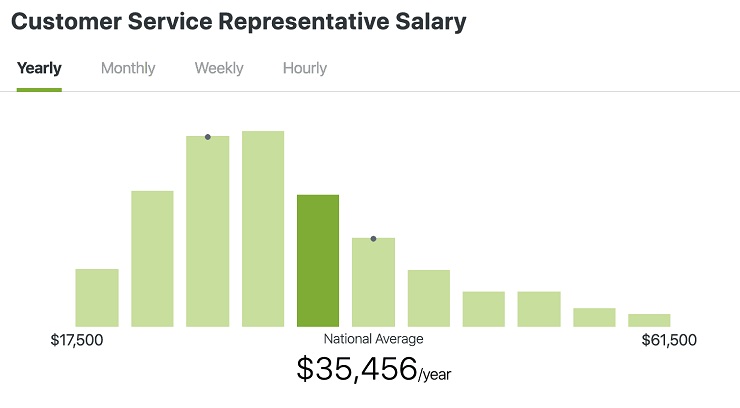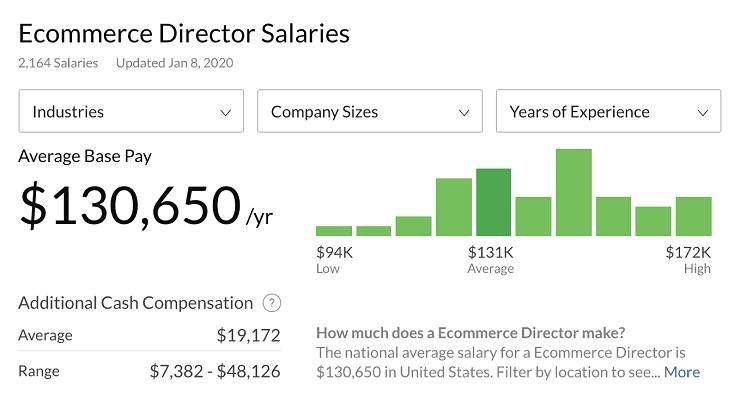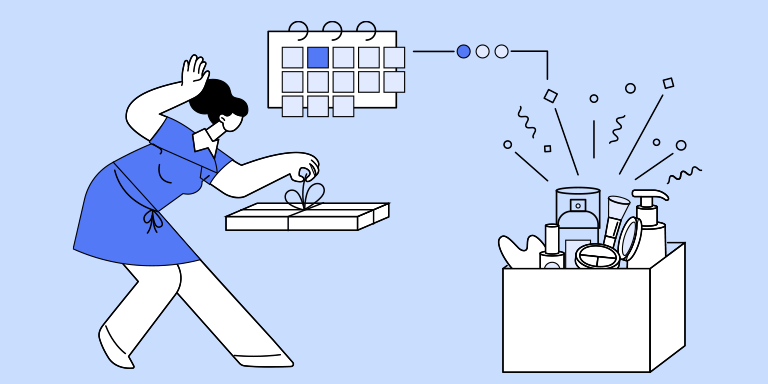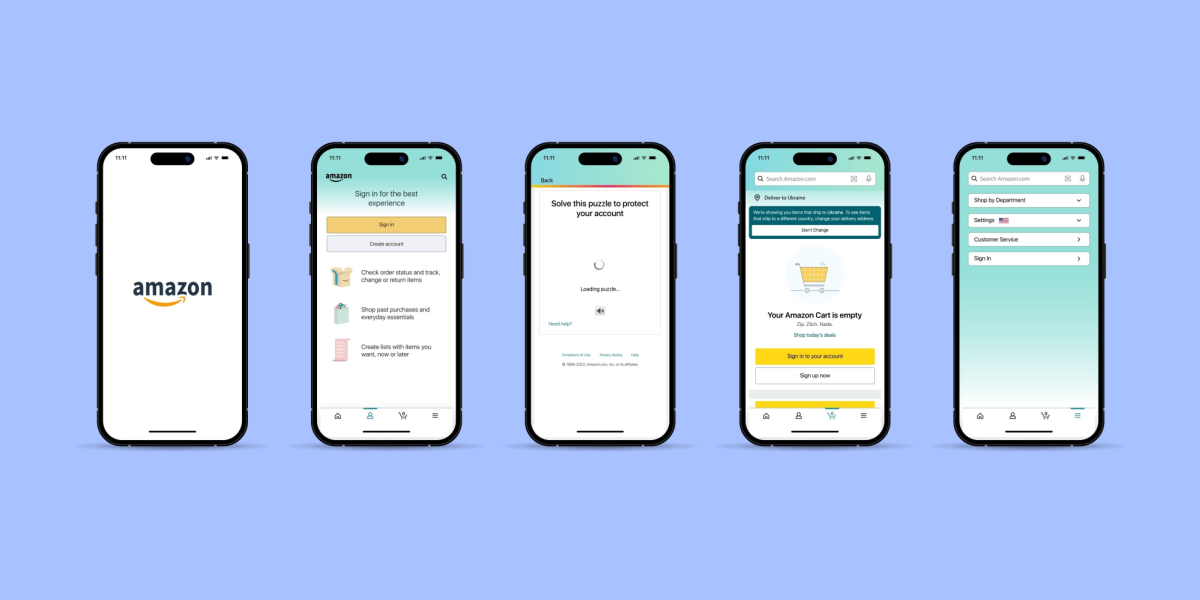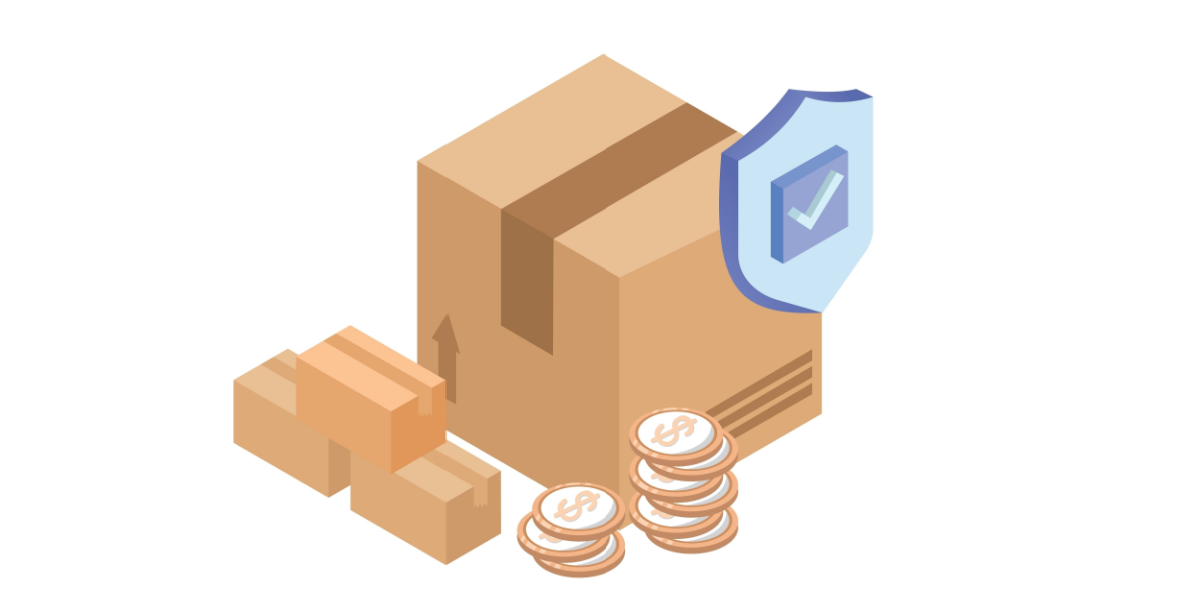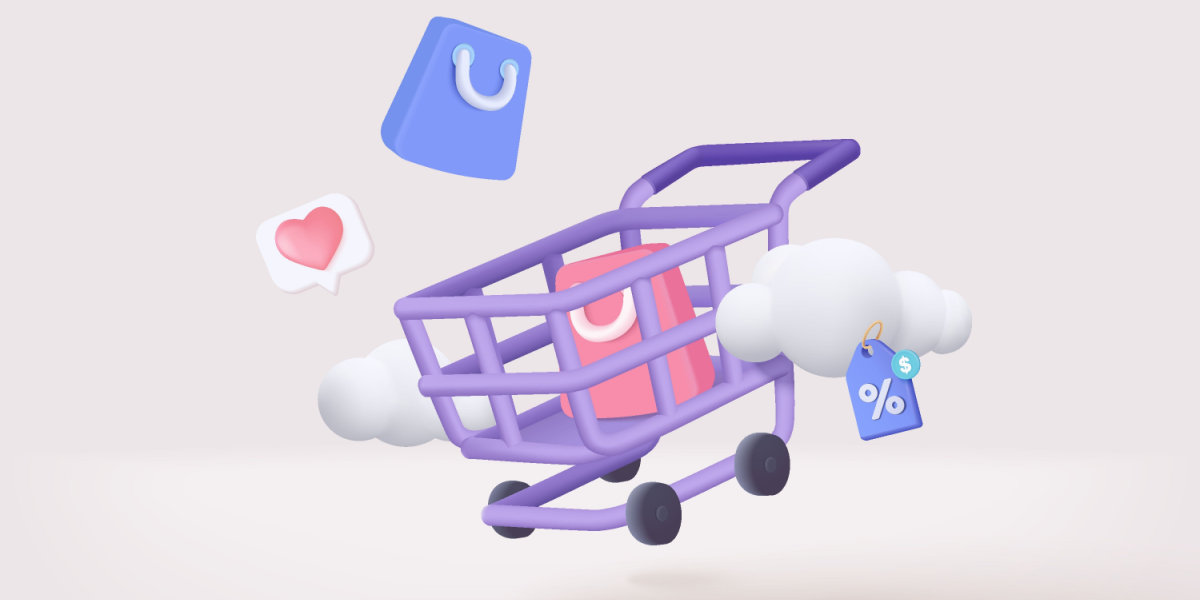Ecommerce is booming. In fact, total ecommerce sales are expected to pass $4.13 trillion in 2020. And the industry has been growing at an impressive clip of more than 20% year-over-year since 2016. We’re not talking about nerds buying collectors items on eBay anymore. This is big business.
And if you’re an entrepreneur who’s been riding the wave, you don’t need me to tell you that business has been good. Possibly even too good for you to keep up with it all, which means it’s time to hire an ecommerce team.
If you’ve found yourself overworked, putting in a few too many late nights, and wearing way too many hats, that time has come. But don’t worry.
In this post, we’re giving you a blueprint for who you need on your ecommerce team and who can wait till later. We’re going to show you what to look for in candidates, what you should expect to pay, and lots of hard-fought wisdom from a few top ecommerce team builders. They’ll tell you exactly what they recommend you focus on when you begin hiring a team for your ecommerce store. This way you can avoid big mistakes later on and scale your store with minimal hiccups.
Your Mileage May Vary
One big fat caveat we have to add here is that every company will be slightly different. Each business will have unique challenges and advantages that will modify the following hiring plans.
For example, if you have a single-product store that sells $1,000+ items (like mattresses), your hiring plan will look different than a company that has 47 low-ticket SKUs (like many supplement companies do).
One business might prioritize digital marketing and media buyers to get more customers for the solo product, whereas the other might need to first hire shipping and supply chain leaders to manage the business’s complex logistics.
You’ll need to take the following factors into consideration:
- Your profit margins. If your ecommerce business has done over seven figures, but your profit margins are razor thin, it’s going to dramatically affect who you can afford to hire. While there’s no one-size-fits-all number for how much revenue you should have before hiring a team, you definitely want to have some cash reserves in the bank—preferably somewhere in the neighborhood of 3-6 months of expenses. For example, if you’re looking to hire someone with a hypothetical $120,000 per year salary, you would need at least $30,000 of that set aside to cover that employee’s costs (preferably more for taxes and other core business expenses). So keep that in mind, as the last thing you want is to hire too aggressively and leave your business strapped for cash early on.
- Where your products are sold. Are you selling worldwide? Are you only in the United States? In certain English speaking countries? Where you’re selling has a lot of impact on hiring. Because if you have a worldwide distribution, someone is going to have to look at how the product gets to each of those countries, what happens if it’s returned, and more. What about collecting payments and paying bills in different currencies? Generally, these factors make inventory, supply chain, and logistics hires much more important.
- Your product catalog’s complexity. If you have a lot of products, variations, and SKUs in your ecommerce store, it’s going to be important that you manage it effectively as you scale. For example, if you run out of stock over big holidays like Black Friday, that can cost you big time. And this is generally going to make hiring inventory, supply chain, and logistics people very important.
- How you acquire and retain customers. How do most people come to learn about you? Is it through paid media alone or do you have a physical presence in retail stores somewhere? If you’re an online-first brand or want to grow your online presence significantly, you’re generally going to need to hire team members who make getting the word out and converting prospects on digital channels—like Facebook, Google and more—possible. This generally means you’ll need to prioritize hiring social media advertisers, copywriters, and email marketers to help with acquisition and traffic.
- Your support needs and returns policies. How often do products get returned after they’re sold? Does the product you’re selling normally require support? All these factors can make hiring support roles critical.
With those factors in mind, we’ve laid out a solid roadmap for how to hire an ecommerce team for your store below.
5 Essential Hires for Your Ecommerce Team
Digital Marketing Manager
What Is It?
When your ecommerce store first starts to grow, you might not have the resources to hire senior execs, but you’ll still need help executing key tasks on the digital front.
And that’s where a digital marketing manager can really help out. They can take some of the load off of you so you can stop working in your business and, instead, work on its growth.
This person might be a trained copywriter, a media buyer, or email marketer, but their chief task will be helping drive traffic to the store and converting visitors into paying customers.
Ideally, this person will have deep experience in analyzing online data and using it to grow core digital sales channels. They should live in Google Analytics, know Facebook’s dashboard like the back of their hand, and be able to create converting email campaigns at the drop of a hat.
They may one day take over the entire ecommerce store and become a vice president, director, or head of ecommerce, but in the beginning they’ll wear many hats and focus more on doing than leading.
Responsibilities
A digital marketing manager will be the practitioner for everything that happens in the online store. They’ll take the visions and goals from the founder and bring them to reality through paid traffic, funnels, email flows and more. Even if they’re outsourcing some work to agencies and contractors, they’ll be your point person.
As your store’s revenue grows, they’ll be less of a practitioner and more of a leader of individual copywriters, media buyers, and email marketing pros. But in the beginning stages of growth, they’ll need to be the chief-doer of the ecommerce efforts.
For this reason, you should choose someone with a broad range of digital sales experience, who’s quick on their feet and great at analyzing datasets.
Expect to Pay
According to Salary.com, a digital marketing manager can expect to make around $101,499 per year. After perks, taxes, and other benefits, the total cost for this employee can double—so just make sure you have the cash on hand for a few months of their pay. They should easily make that back in no time though. This person will be a core component of any high-functioning, rapidly growing ecommerce team.
Supply Chain Manager
What Is It?
One of the most critical and, frankly, underappreciated roles in an ecommerce team is the supply chain manager. This is the person tasked with making sure the products stay in stock, make it to the warehouses on time, and actually get to customers.
Depending on how many steps are involved between the time a customer places an order and the product arrives at their door, this person can have a huge impact on the business’s success.
Not only do they help with keeping shipping costs low, but they also manage raw ingredient lead times and interact with the manufacturers to ensure the product is never sold out.
Responsibilities
A supply chain manager is charged with sourcing raw materials, placing orders and making sure the goods make it to your warehouses in time to ship to your customers.
For example, if you run an ecommerce store selling whey protein powder, a supply chain manager will be the one finding quality ingredients from manufacturers, placing orders, getting everything quality tested, securing clearance for international shipments, and shipping it to the customer safely.
It’s a big job and one that requires a lot of patience, negotiating skills, an understanding of math, comfort inside spreadsheets, and an eye for details. Even one mistake could result in the product being delayed for months.
Depending on how complex your supply chain is, plan to make this hire earlier than later.
Expect to Pay
According to Salary.com, a supply chain manager for ecommerce brands can expect to make around $111,219 per year. After perks, taxes, and other benefits, the total cost for this employee pushes past $200,000. So it’s a real investment for growing ecommerce brands. But if you want to compete with Amazon and get your products delivered on time, every time, this hire should come very early as you look at how to hire an ecommerce team for your store.
Web Developer
What Is It?
In the world of ecommerce, a smooth-running website is essential for success. And even though tools like Shopify and ClickFunnels have made selling accessible to even non-techy people, at a certain point you’re going to need help managing the tech side of your ecommerce store.
From mobile optimization to speeding up page load to making sure the store’s apps and plugins all play together without crashing the site, a developer will be a key member to hire for your ecommerce team.
Responsibilities
A developer’s chief role is owning the design, functionality, and build of the store. If the site is down, it’s their job to fix it. If data is not flowing properly, it’s their job to figure out why. If the product pages look wonky, it’s their job to uncover why the code is broken and repair it.
Additionally, this person should be versed in both front-end and back-end development. Look for someone who has an understanding of the core tech stack running your business and knows how to think quickly on their feet.
Even one day of a site being down can cost you tens of thousands of dollars. This person will make sure that doesn’t happen. And if it does, that it’s fixed fast.
Expect to Pay According to Indeed, a web developer for ecommerce brands can expect to make around $74,785 per year. Throw in perks, taxes, and other benefits and the total cost for this employee can be around double that. It’s not cheap, but it’s a hire for your ecommerce team that can be worth it with even one recovered site crash.
According to Indeed, a web developer for ecommerce brands can expect to make around $74,785 per year. Throw in perks, taxes, and other benefits and the total cost for this employee can be around double that. It’s not cheap, but it’s a hire for your ecommerce team that can be worth it with even one recovered site crash.
Customer Service Representatives
What Is It?
Whether it’s answering live chat, addressing support tickets via email, or taking phone calls, customer service is a critical part of any successful online storefront. And it’s something that you will simply have to hire for your ecommerce team to scale.
The simple fact that you’re doing business online means there will be some issues. Customers will have questions. People will run into issues at checkout. Or they’ll simply want to know where their shipment is. And if people aren’t able to easily reach out and get answers, it can do a lot of damage to your brand.
On the flipside, some ecommerce brands like Zappos have built a huge portion of their brand and customer trust by having an excellent customer support team.
Whether it’s a team of one or a team of many, don’t underestimate the power that having a well-trained, positive support team can have on your ecommerce business as it grows.
Responsibilities
A customer support representative’s main job is problem solving on behalf of the customer. They help customers get their questions answered and make sure the customer is treated like gold.
If someone hasn’t received a shipment, it’s their job to find out why, address the customers concerns, hunt down the order, and make sure the customer is happy with the solution.
As you scale your store, customer support is a critical function. Bad impressions of your brand can do irreparable damage. But positive encounters can make a huge difference on whether or not customers come back or not.
Expect to Pay
According to ZipRecruiter, a customer service representative can expect to make around $35,455 per year. After perks, taxes, and other benefits, the total cost for this employee can be around double that. It’s one of the less expensive hires you’ll make, but it’s a critical function in growing a healthy brand.
Vice President/Director/Head of Ecommerce
What Is It?
The last and, arguably, most important hire for your ecommerce team will be the person who’s going to lead it through the next stages of growth. This person’s chief responsibility will be overseeing the entire ecommerce operation, attracting great talent, and making decisions that allow the team to achieve goals faster.
Ideally, this person will have a wealth of experience in many different areas of online marketing, from website design to advertising so that they’re able to effectively hire and coach other team members to success.
Be very patient and picky with this hire because making a mistake with this person can set you back a year due to bad leadership or going about tackling goals the wrong way. But making a great hire can expedite your business’s growth by many months. We recommend saving this hire until later, because in the beginning, you just need more hands in the ring. But later, you’ll need people to guide the team.
Responsibilities
This person will perform a broad range of tasks and oversee many different areas, including media buying, helping with website design, coaching copywriters on the brand’s voice, customer support, and more. Their chief goal will be to increase the online store’s performance over time. They’ll also be the foundation upon which everything else is built.
Expect to Pay
According to Glassdoor, a director of ecommerce can expect to make around $130,650 per year. After perks, taxes and other benefits, your expense as the business owner will be around double that. So it’s a steep investment for smaller companies, but it’s one of the most important hires you’ll make as you scale up your ecommerce efforts.
Hiring Dos and Don’ts for Your Ecommerce Team
Down the road, your team will expand beyond these five core players into dozens and, possibly, even hundreds of people. But these are the critical roles we’ve seen ecommerce companies need to grow effectively.
That said, we wanted to share some hiring wisdom from top ecommerce team builders. Here’s a quick “do this, not that” guide to keep in mind as your ecommerce team grows.
Do allow people to grow into positions. Don’t hire people who rest on their laurels.
One thing is certain about ecommerce: The landscape is constantly changing. Strategies that worked 12 months ago no longer work today. And that means your success will ultimately depend on your team’s ability to adapt.
That’s why many top ecommerce leaders recommend hiring people with a growth mindset. Just because someone ran a bunch of profitable Facebook ads in 2011 doesn’t mean they still will be able to today.
As my former colleague, Jeremy Wadell, the founder of several six- and seven-figure ecommerce stores, says, “When you’re hiring, don’t just hire people that rest on their laurels. I look for growth minded people, people willing to pivot and learn more than anything else.”
In other words, you can bring people who are newer to the digital landscape on your team and grow with them. But close-minded people can be really bad hires.
Do start lean and grow. Don’t assume you’ll need to always get bigger and bigger.
One of the biggest mistakes I see growing ecommerce brands make is hiring too many people too fast.
Under pressing business needs, they bring on lots of new people, but after things settle down they’re left with a bloated staff and excess cost. If you’re not careful, this can wreck your growth efforts and set you back months.
As my former colleague, Lauren Purcell, director of ecommerce and retention for disruptive enterprises, says:
Hiring for ecommerce goes in cycles. You start lean and grow the team, of course. But where I see people go wrong is they don’t go lean and and regrow the team. This is how you succeed in ecommerce and ensure the people you have on hand are the people you need for the current set of challenges in the business.
That does mean some turnover. But turnover is healthy. You just want to always make sure to have key roles even in a lean state. Those key roles would be people focusing on acquisition, conversion, and retention and ensuring you have those bases covered.
In other words, as the team grows, be prepared for resets and realize that going back to a lean state doesn’t mean failure. It’s a key part of growth you have to go through to get to where you ultimately want to go.
Do look for energy and enthusiasm. Don’t just hire 9-to-5ers.
Building an ecommerce company can take long hours, lots of failure, and patience. It’s something that people looking for “just another job” often can’t handle. That’s why many top ecommerce leaders look to hire people with extreme passion for their work.
As my former client, Steve Doodian, the co-founder of a rapidly growing ecommerce brand, Protein Cookie Butter, says:
Make sure the person or people you decide to bring on your team understand WHAT you’re selling, but more importantly…WHY you’re selling the product(s) you’re launching. If they don’t, they will view it as just another job and not be able to carry out the mission of the company. It doesn’t matter how naturally good somebody is at their job. You can’t replace passion. It always wins.
In other words, it’s tough to hire an ecommerce team around people who don’t have a deep passion for your products and the job at hand. As you build your team, weigh this factor heavily into who you hire.
Add These Roles to Your Ecommerce Team Today!
Whether you’ve just made your first hire or you’re just now drafting your first job description, we’d love to hear from you.
What hires have been the most important to your ecommerce business? Any parts that you’ve struggled with? Let us know in the comments below and we’ll help out however we can.
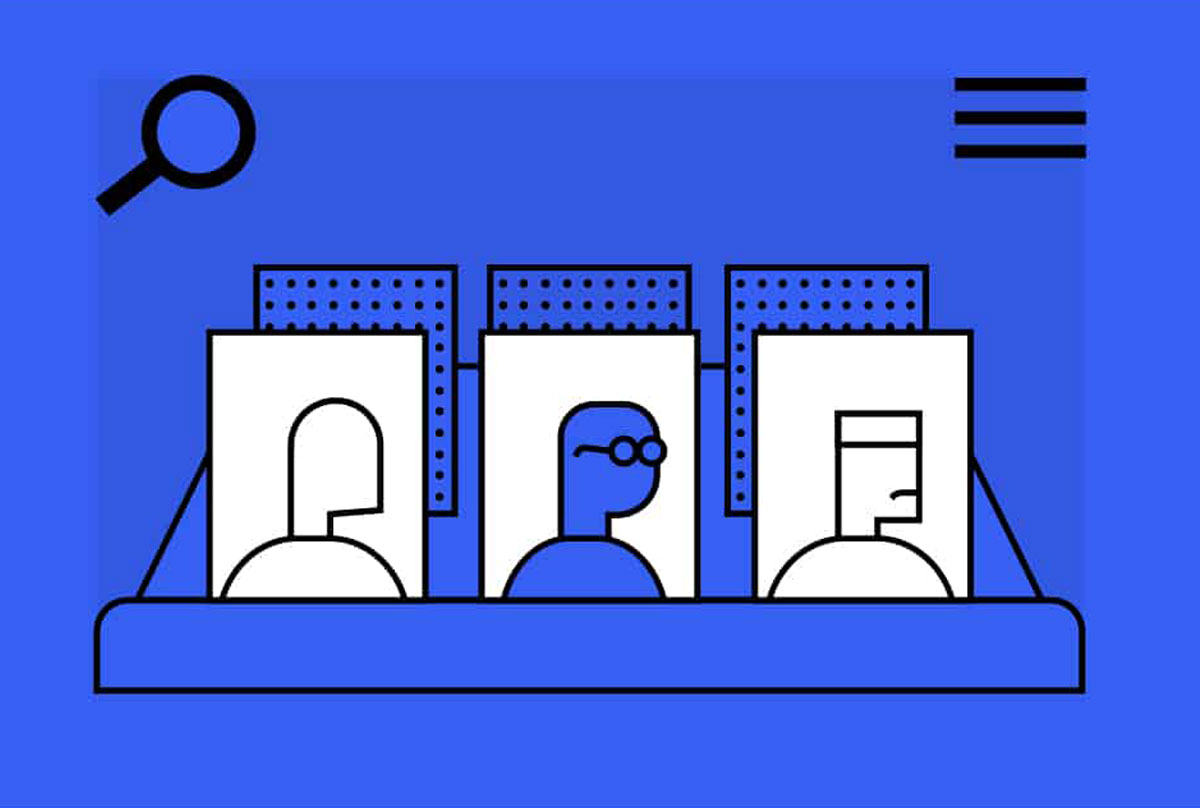
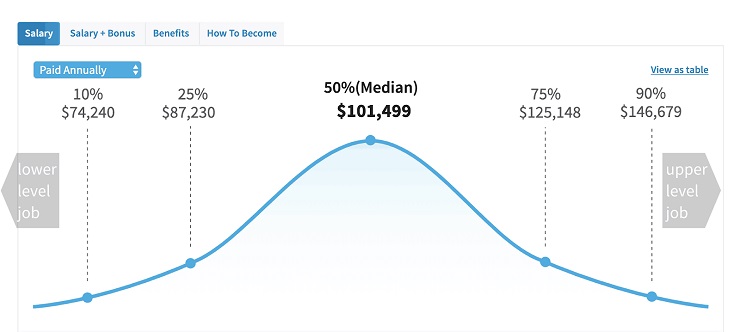
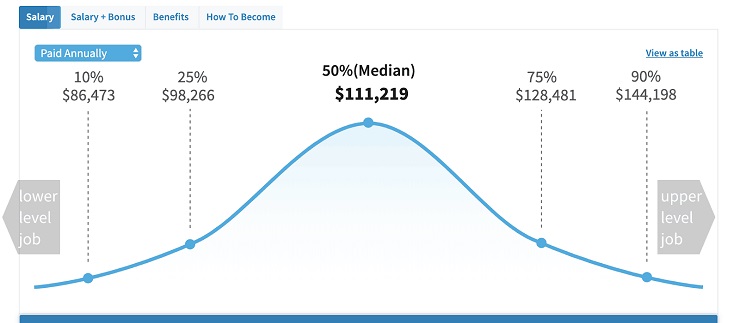
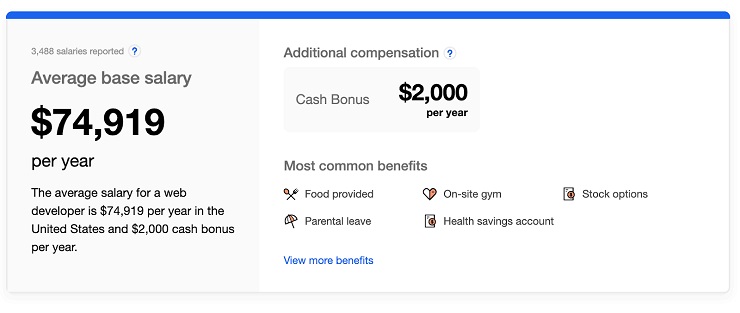 According to Indeed
According to Indeed